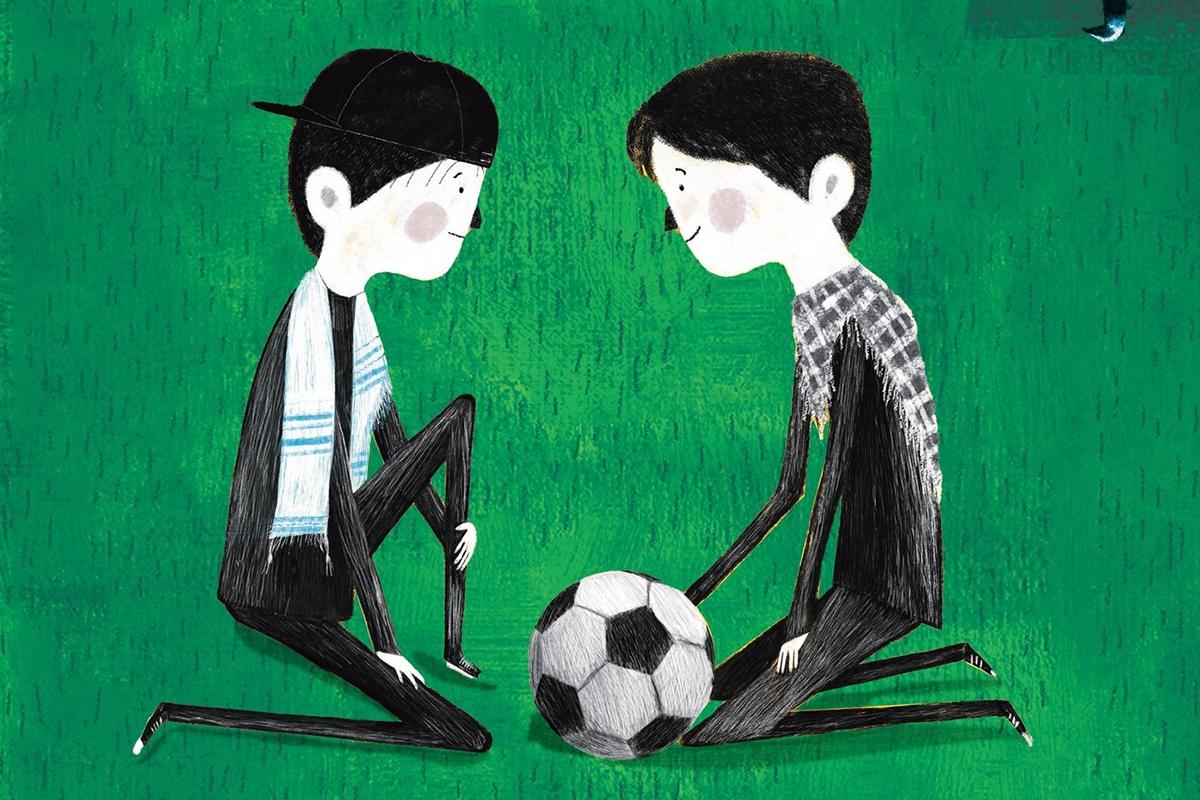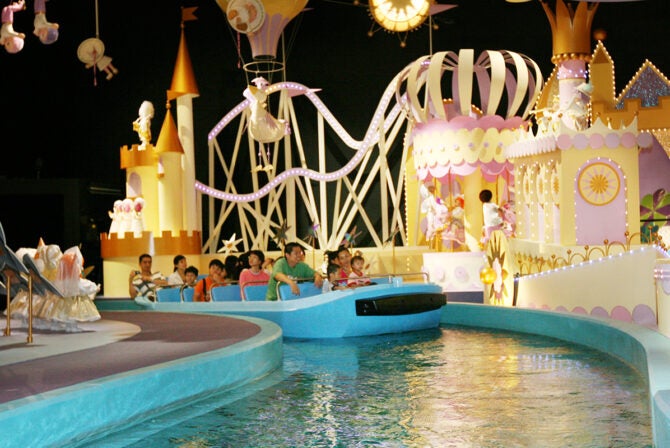I was about to leave for Ben Gurion Airport on my way back from a wedding when I saw the news out of Majdal Shams. A Hezbollah rocket hit a soccer field in the Druze town in the Golan Heights while little kids were practicing there. It was still not known how many died, but it seemed clear that the victims were children — trying to play a soccer game, trying to find a respite in a complex reality where the sound of missile fire is a constant, as it has been in the Israeli north during this war, as it was in the Israeli south for years.
During the school year, back in America, my son takes soccer. We march down to the field under our home where fellow adoring (and exhausted, patience-tested) parents sit on foldout chairs they’ve dragged down to the grass and yelp encouragements or try to convince their little ones to not hang by them and run some drills with the parent coaches. There are so many beautiful lessons in soccer: of focus and discipline, of how to deal with the disappointment of a loss, of shaking your opponent’s hands. But soccer also exemplifies the importance of just being a kid, running around in the sun, finding joy and laughter in a game. Those lessons always seemed like such a small, trivial part of our weekend routine, but I realize now it is a huge privilege, one that kids in war zones around the world over aren’t afforded — the ability to play safely.
By the time I landed back in the U.S., the death toll was clearer. A dozen Druze kids were killed. Little ones so, so loved. One mother lost three children. It’s not the first time young children have died playing soccer due to this conflict. During the 2014 Gaza War, four boys were killed while playing soccer on the beach in Gaza. Earlier in July, Palestinian children who were gathered to watch a soccer match were killed in a Khan Younis School turned shelter from an IDF airstrike. And yet, even though too many children have died in this conflict, kids keep playing soccer, in Israel and in Gaza, despite sirens and falling bombs.
In “Daniel and Ismail,” author Juan Pablo Iglesias Yacher imagines two boys who live in a place where one can safely play soccer. The book, which came out long before October 7, but was re-released in paperback this spring, features a Jewish boy and a Palestinian boy who live in the same city. They are born on the same day, go to the same public parks, and they both get soccer balls for their birthdays. Each also gets a ritual item to remind them of their heritage — for Daniel, a tallis, the Jewish prayer shawl, and for Ismail, a black and white keffiyeh, the Arab headdress that symbolizes to many Palestinian solidarity and identity. They find each other at the park with their brand-new balls and play together, using their keffiyeh and tallis to mark the lines of an imaginary soccer field.
Some Jews might be disturbed by the use of the tallit in this book, incongruous with the way it is used in ritual practice. But the tallit here stands for a visibly Jewish marker, and when Ismail accidentally takes it home instead of his keffiyeh, he faces the ire of his Palestinian community — as does Daniel, when he comes home draped in Ismail’s keffiyeh. They have nightmares about all the things they’ve seen in the news, nightmares that many Palestinian and Israeli kids have every day as this war keep raging on.
Still, they find each other the next day in the park, and there’s a beautiful moment in which they exchange their significant pieces of cloth, admitting to each other, “If you knew what my people say about your people!”
They let themselves come together again into the exuberance of the game. They play together and others join in. And perhaps the most beautiful part of this book, with its sweetly evocative illustrations by Alex Peris, is when both Daniel and Ismail dream not of violence, but of joyful, crowded soccer games.
Equally special about this book, which is translated from the original Spanish into English by Ilan Stavans, is that it features two more translations. One in Hebrew, by Eliezer Nowodworski and Frieda Press-Danieli, and one in Arabic, by Randa Sayegh. Not only that, but the book is also printed so that it reads from right to left, the way children who speak Arabic and Hebrew read their books, immersing those of us who usually read to our kids in English in this kind of primal new reading experience. The writing itself is evocative and poetic, and the illustration style, with a limited color palate, allows us to focus on Ismail and Daniel, their sweetly feeling faces.
It’s hard to see the adults in this book, who care so deeply about their own children, be so hateful and scary when it comes to children who come from other backgrounds. Depending on the age of your kids, perhaps the best thing to come out of this book will be the conversations you will have about it afterward, especially when it comes to those perspectives of the adults. It’s very easy to tell our children that all people are equal, deserving of respect and safety, but a lot harder to explain to them why the world doesn’t always reflect those values. For younger kids, exposing them to the beautiful letters of Hebrew and Arabic and to these children of different backgrounds, two kids who understand the burdens of their differing experiences in the world, might be a seed of peace that you can start to sow.
As Miriam Udel rightly surmised in the New York Times, the plot of the book “subtly acknowledges that a new generation will have to figure out how to make peace and that it is possible for children to lead us.” Reading it now, that feels like a heavy burden to put on a younger generation still feeling unsafe in their beds, still having such nightmares. Instead, I dream of days when little children around the world, including in Israel and Palestine, can dream of soccer, not bombs.
Buy “Daniel and Ismail” on Restless Books or Amazon








